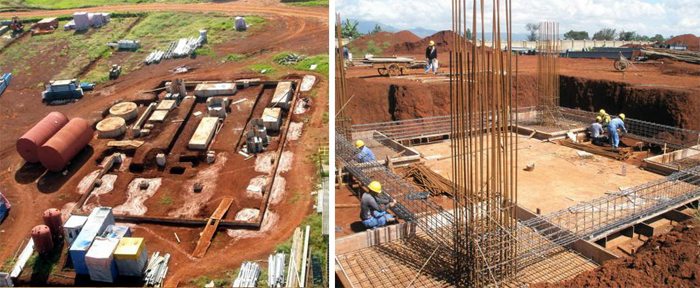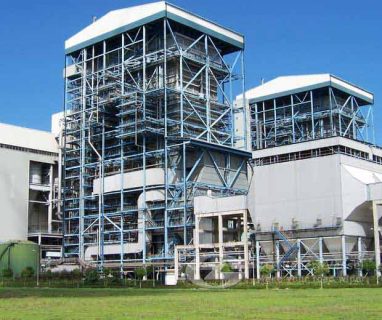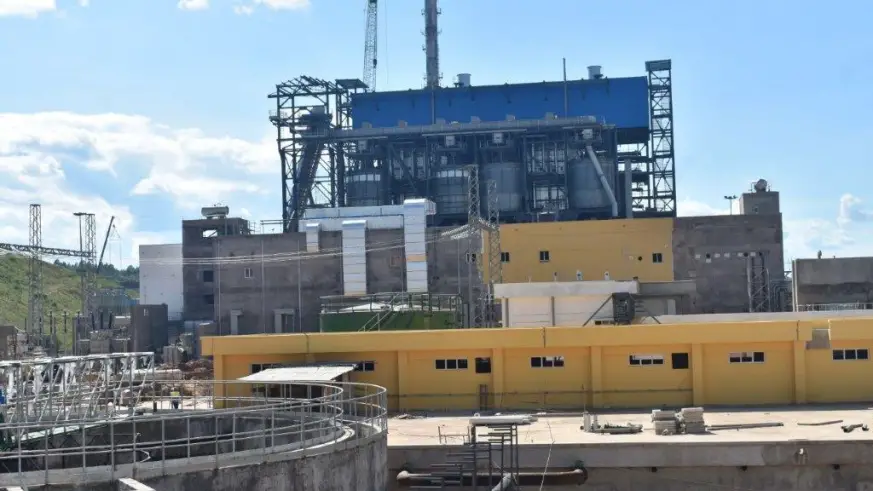Gisagara Thermal Power Station is 80 megawatts (110,000 hp) peat-fired thermal power plant in Gisagara District, in the Southern Province of Rwanda. The power plant is situated about 75 kilometers (47 miles) by road southwest of Kigali, the country’s capital and largest city, in Akanyaru Village of the Gisagara District of the Southern Province.
The power plant was created and is now owned by a group that includes a Turkish solid fuel company Hakan AS, Themis, a project development firm, and Quantum Power, an international power company. The consortium has created HQ Power Rwanda, a special purpose vehicle (SPV) business.
The power purchase agreement was signed by the owner developers, who will build, run, maintain, and own the power plant for 26 years starting from the date of commissioning while also selling the electricity produced to the Rwandan electricity utility company. The Rwandan government will then regain ownership of the power plant.
Read Also: 29th Sept 2014
A US 260m peat power plant to be constructed in Rwanda

The government of Rwanda is planning to construct a new US$ 260m peat-fueled power plant in the Gisagara district, Rwanda to add up to 80 megawatts into its national grid. To be constructed in partnership with a Turkish company, Hakan, the new peat power plant will help address the country’s growing energy demands.
The project is the second in the country after the Gishoma peat power plant that is nearing its completion and expected to generate 15Megawatts.
According to officials, the new project kicked off with the mining of peat before the plant is established. It is expected that the new peat power plant will start producing electricity by 2017 after the completion of the first phase. The second phase is expected to add another 40 megawatts and will kick off in 2017.
Rwanda may, through this new peat power project, woo investors into the energy sector to enable it to achieve its target of generating at least 563 megawatts and connecting at least 70 percent of Rwanda’s households by 2017.
The country has invested billions in hydroelectricity and methane gas as it strives to meet its targets in line with socioeconomic development and poverty reduction strategy. The project’s officials are optimistic that the completion will see a significant reduction in the cost of electricity in the country.
Feb 2016
Rwanda to construct a US$ 400m peat-fired power plant

A US$ 400m peat-fired power plant is set to be constructed in Southern Rwanda by a Turkish company, Hakan Mining and Generation Industry and Trade Inc. The 80MW power plant is under a power purchase agreement (PPA) signed by the Rwandan government.
The agreement gives them the go-ahead to design, finance, build, own, and operate the plant using peat extracted from south Akanyaru in Gisagara District.
Hakan’s chairman, Mr. Ahmet Karasoy confirmed the reports and said that they were majorly attracted by Rwanda’s growth prospects offered by the country’s vibrant economy and investment opportunities which are attributed to good public administration.
“We were attracted to this market majorly because of the investment opportunities and the economic growth that has been experienced in the country so far,” said Mr. Karasoy.
The mega project is anticipated to open up more opportunities to the citizens of Rwanda and the Turkish company is expected to construct within 47 months and commission the power plant to enable it to inject 80 MW into the national grid by end of March 2020 or face penalties for failing to deliver.
They are also planning to support some sectors like agriculture through irrigation and other corporate social responsibility projects in Rwanda. Hakan is an independent power producer that is engaged in the coal import business since 1995.
Rwanda is a fast-growing economy with an average growth rate of 7% during the last five years. The country has macroeconomic and political stability with a conducive business environment. They have currently installed generating capacity of 185 MW and construction of Hakan’s peat-fired plant is set to commence within 12 to 15 months to add on to the electricity supply deficit experienced in the country.
Jan 2021
HQ Peat Power Plant construction in Rwanda nears completion
HQ Peat Power Plant in Rwanda is nearing completion after approximately three years of construction. This is according to Dominique Gubbins, the General Manager of HQ Power, which is the company behind the development of the facility.
HQ Power is owned by a Turkish investor called HAKAN AS, an international power company dubbed Quantum Power, with the participation of Themis, a leading project developer and investor with an exclusive focus on incremental renewable power generation assets in Sub-Saharan Africa.
40MW to be connected to the national grid by March this year
Mr. Gubbini said that by March 2021, the plant which is located in Mamba in Gisagara District will start releasing 40 megawatts of electricity into the national grid.
“The 40 megawatts will be produced by the part of the plant which is under completion and which will be tested in the course of this month. The remaining part we hope to complete by May to allow additional 30 megawatts to be connected to the grid by June this year,” explained the HQ Power, general manager.
The plant will have the capacity to produce 80 megawatts of electricity, 87.5 of which will be connected to the national grid while the remaining percentage, equivalent to 10 megawatts, will be retained for the plant’s daily operations.
The largest peat-to-power electricity plant in the Eastern African region
Built under a Build Operate, Own, and Transfer (BOOT) basis with a 26-year of Power Purchase Agreement, the HQ Power peat will be the largest of its kind in the Eastern African region and the second-largest in Africa.
It will also be among the list of those providing the most electricity in the East African country, together with Nyabarongo Hydro Power Plant, which is currently the largest and that produces 28 megawatts of electricity.
